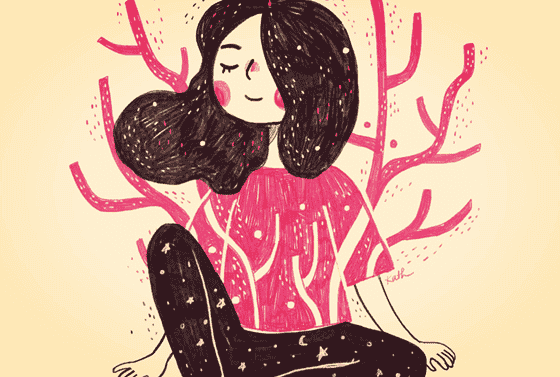
Written and verified by the psychologist GetPersonalGrowth.
Last update: 15 November 2021
We all need esteem. First of all by ourselves, to enhance our skills, our image and our value. At the same time, esteem is also that pillar with which to lay the foundations of self-esteem in children, the push that the worker needs and the bond that will allow to build a solid relationship between a couple, in which to feel loved, valued. and appreciated.
The concept of esteem, however curious it may seem to us, sometimes arouses some misunderstanding. There are those who see it as a negative dimension, because people who continually seek this positive reinforcement from others are unable to maintain adequate emotional independence. In the eyes of many, they are personalities who build their self-esteem based on the responses offered by others.
At this point it must be said that the secret is balance. We cannot deny the great importance of esteem in our relational, social and emotional fabric. If we address the pyramid of needs for Maslow, we will see that esteem occupies a separate place. It is at a point in the hierarchy where there is a subtle harmony between self-esteem, or our ability to feel competent, and the importance that others also appreciate us and what we do.
Esteem, a type of personal and social dignity
The human being lives in constant duality. We all like to feel present in a context, but we also like to be absent from it, to feel free, independent and sometimes even separated from our daily scenarios. Nobody likes to be invisible. Being a figure that no one sees or appreciates, that is not taken into consideration.
This is well known to the child who sits in the back rows of the classroom, in a corner of the courtyard with no one to talk to, with whom to dabble during a rich and colorful childhood. Even the teenager knows that no one appreciates, but who is always reprimanded and sanctioned. And even the person who does not feel appreciated by their partner knows it very well, who lives in the closet of the deepest loneliness and emotional distress. The estimate it is a psychic sinew that integrates us into our target groups and that, in turn, ennobles us as people.
Because esteeming someone means making them visible. It means giving him a presence, allowing him to “To be”, “to stay” and to create oneself in freedom. It is appreciating someone for who they are, giving them an affection that promotes personal growth, but which, at the same time, neither hinders nor invalidates. Estimation generates self-acceptance so that, in some way, the muscle of our self-esteem can be strengthened even more.
On the other hand, one aspect that we cannot forget about self-esteem is that, in this self-evaluation perception, the way we think others see us is also included. One thing cannot be separated from the other. We are social beings and what others say or contest will affect us in one way or another.
Estimation is important, but we cannot depend on it alone
Few things can be more painful than rejection. Experiencing abandonment or contempt within our target social group ignites our alarm and panic bells. Because unwanted loneliness and isolation caused by unhealthy, negative or neglected bonds generate suffering. People must therefore reconcile the esteem they give themselves with that they receive from others.
Basing our lifestyle only on external positive reinforcements generates addiction and malaise. The quality we attribute to ourselves will in turn affect how others value us. Let's take some examples. The worker who believes in his abilities, feels valid and confident, will generate a positive impact on the workplace. On average, others will recognize his efforts.
Let's take another example. The person who appreciates himself, who feels fulfilled, free and autonomous, builds much more solid emotional relationships. This mature and confident temperament also arouses esteem and admiration, but never a mutual dependence. There is no need for constant reinforcement, nor does our happiness depend on positive reinforcement alone. There is a perfect balance between what we give to ourselves and what others offer us with absolute sincerity and with the most authentic affection.
Esteem is the foundation of any company for a very simple reason: it fosters inclusion. He makes the invisible present regardless of his age, condition, ethnicity or character. Knowing how to recognize is also knowing how to love with intelligence, because those who practice the healthiest esteem are capable of giving value to others for how they are and not for how they would like to be.
We learn to respect each other, we make people and needs visible and present through affection, availability and humility.


























